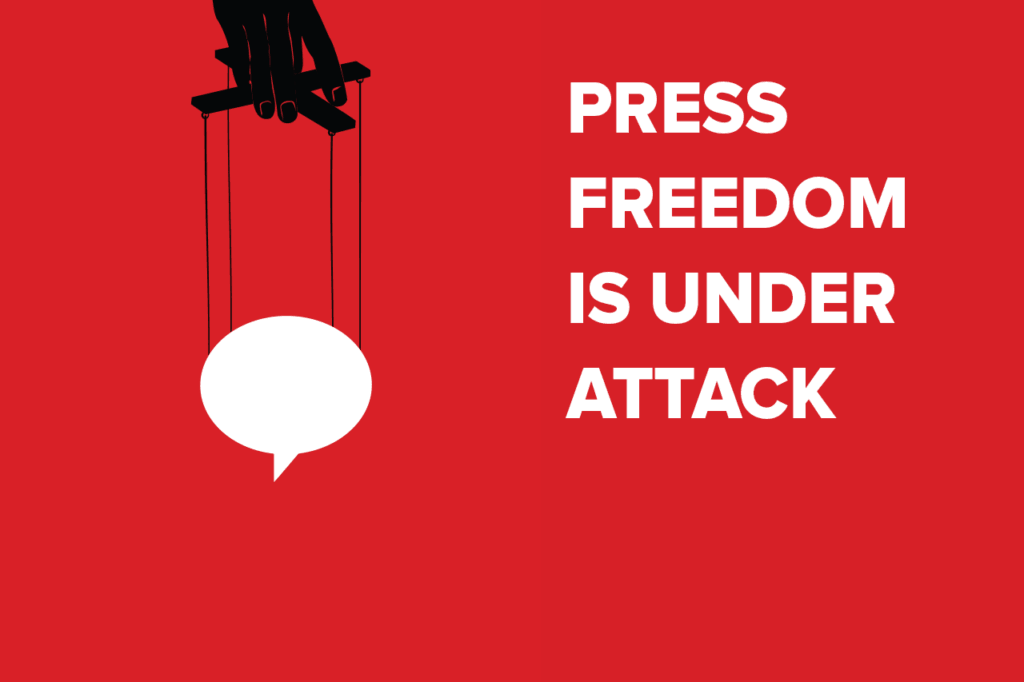World Press Freedom Day: Media stakeholders demand constitution amendment
Stakeholders in the media industry have called for the amendment of constitution to give more room for the efficient and effective practice of journalism in Nigeria. Key stakeholders in the media industry made this known during a symposium to commemorate the World Press Freedom Day, organised by the International Press Institute (IPI), Nigeria and held […]

Stakeholders in the media industry have called for the amendment of constitution to give more room for the efficient and effective practice of journalism in Nigeria.
Key stakeholders in the media industry made this known during a symposium to commemorate the World Press Freedom Day, organised by the International Press Institute (IPI), Nigeria and held in Abuja yesterday. The event was titled, “Journalism under digital siege.”
- Calls for moderation of burial processions in Jos heightened
- Painful tales from Fulani IDPs in Niger
Among the media veterans that lent their voices to the need for legislation on the operation of journalists in Nigeria was a former director-general of the Nigerian Television Authority (NTA), Prof Tonnie O. Iredia, who said the constitution gave journalists assignments without providing how to get the job done.
“There is no legal provision that enables the media to do its job. I have heard some journalists mistakenly say that section 22 of the Nigerian constitution empowers the media. That is wrong as the section is an assignment and not an empowerment.
“It states that you shall do this, but do you see anywhere it states this is what you shall use to do it? No. When the time came for giving the power to do it, they generalised the power and said freedom of speech, not freedom of the press, unlike what is obtainable in Ghana, Malawi, US and other countries,” he said.
He, however, urged journalists to look inwards in addressing the challenges of the profession.
Prof Iredia, who lectures at the Nasarawa State University, Keffi and was the guest speaker at the symposium, presented a paper titled, “What journalists and the media need to do to keep safe, retain credibility and be sustainable.”
He listed some of the issues, which he termed “contributory negligence” to include sycophancy, divided loyalty, timidity, self-censorship, laziness and bogus professional status.
In his welcome remark, the IPI Nigeria president, Musikilu Mojeed, said the title of the event was apt because the institute’s stand resists any measure or action that threatens credible and independent journalism.
He urged journalists to reflect on the numerous challenges confronting the profession, including unethical practices by some journalists, which he said affected journalists’ credibility and endangered practitioners.
The Senior Special Adviser on Public Affairs and Strategy to the President, Muhammed Sani Zorro, called for a constitutional amendment and efficient regulation in the media industry.
The president of the Nigeria Union of Women Journalists (NAWOJ), Ladi Bala, urged the Nigeria Union of Journalists (NUJ) to ensure that the profession has constitutional backing so that journalists could occupy their place in the society.
Among the dignitaries at the event were the public relations officer of the Nigeria Police Force, CSP Olumuyiwa Adejobi, Minister of Information and Culture, Alhaji Lai Mohammed, represented by a director in the ministry, Mrs Kenechukwu Offie, the president Nigeria Union of Journalists, Chris Isiguzo and the director-general, Voice of Nigeria, Osita Okechukwu.
